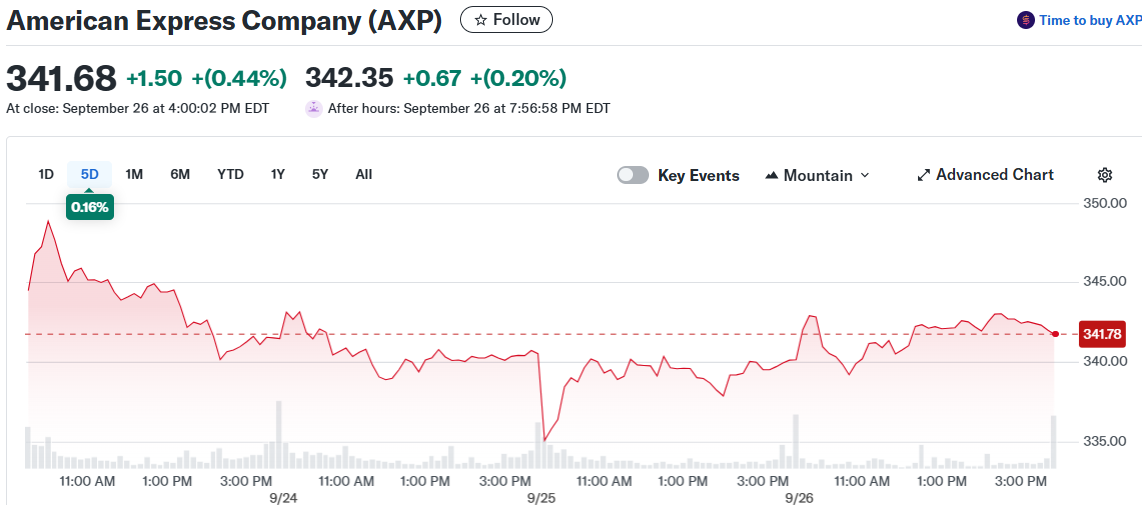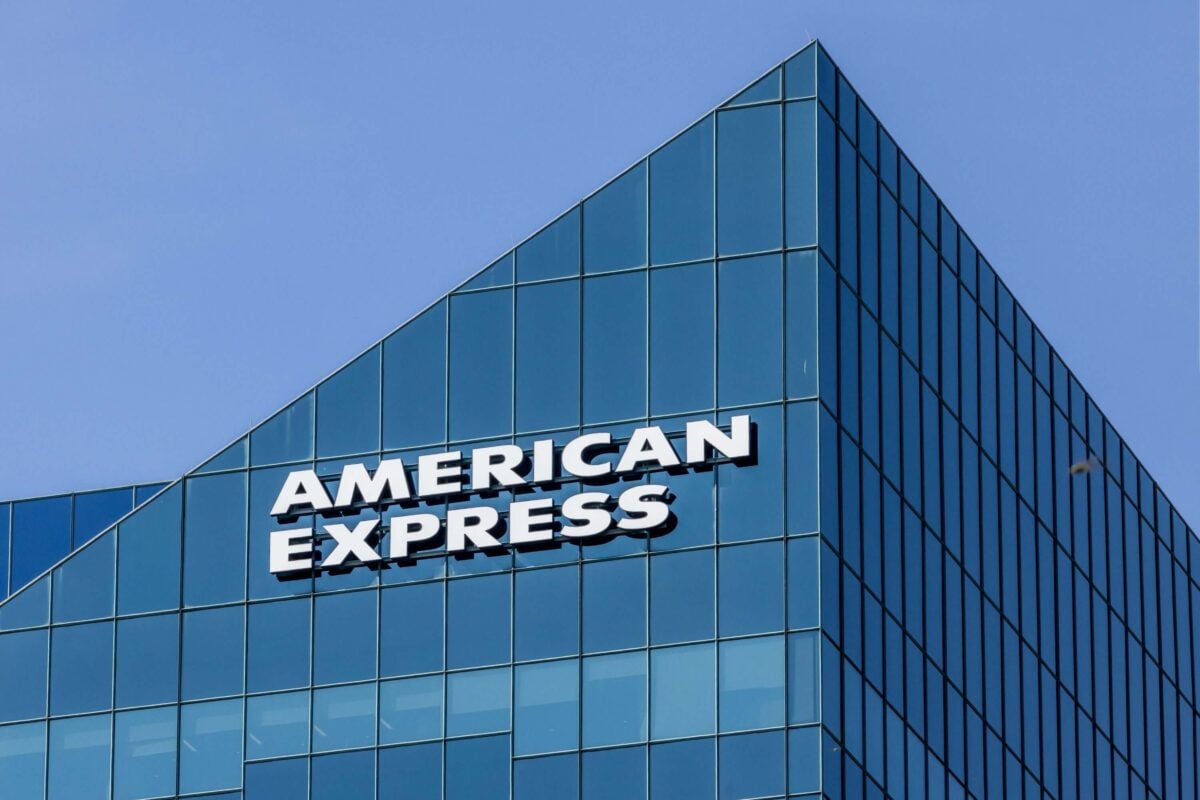TLDR
- Jim Cramer recommends American Express as cheaper than the S&P 500, trading at less than 20x next year’s earnings
- Stock has surged 27.4% in the past year and 163.2% over three years with strong recent momentum
- Company released a refreshed platinum card targeting millennials and Gen Z customers
- Valuation models show mixed results: Excess Returns suggests 10.4% overvaluation while PE analysis indicates fair pricing
- Analyst forecasts predict 12.6% earnings growth next year with potential for upside surprises
American Express shares have been on a tear, posting impressive gains across multiple time frames. The stock has delivered a 27.4% return over the past year and an eye-popping 163.2% gain over three years.

The recent momentum has caught the attention of market commentators. Jim Cramer recently highlighted the stock as one of the relatively cheap options in the S&P 500.
“AMEX should have 12.6% earnings growth next year, just barely better than the market,” Cramer noted. He added that the company is “selling for less than 20 times next year’s numbers.”
The financial services giant recently launched a refreshed platinum card. Cramer believes the new offering will particularly appeal to younger demographics, especially millennials and Gen Z customers.
American Express has maintained strong performance metrics. The company boasts an average return on equity of 35.50%, showing efficient use of shareholder capital.
Analysts expect the company to reach a stable earnings-per-share of $18.12. The forecasted stable book value sits at $51.05 per share.
Valuation Methods Show Different Pictures
The stock currently trades at a price-to-earnings ratio of 23.7x. This figure sits well above the Consumer Finance industry average of 10.5x.
However, the PE ratio remains below its listed peers, which average 29.7x. This positioning suggests relative value within its competitive set.
An Excess Returns analysis paints a different picture. This model suggests the stock may be overvalued by approximately 10.4% based on current pricing.
The analysis considers the company’s cost of equity at $4.30 per share. It calculates excess returns at $13.82 per share, indicating strong value creation capabilities.
Recent Performance Drives Investor Interest
The stock has posted a 6.0% gain in just the past 30 days. Year-to-date performance stands at a solid 14.5% return.
Over a five-year period, American Express has delivered a remarkable 258.3% total return. This performance has far outpaced many peers in the financial services sector.
Market optimism around consumer spending growth has supported the stock price. Continued demand for premium financial services keeps investors engaged.
The company’s value score registers at just 1 out of 6 on certain metrics. This suggests limited undervaluation according to commonly used measures.
Different valuation approaches yield varying fair value estimates. One narrative places fair value around $366, while another sees it near $230.
The stock’s current trading multiple reflects market confidence in future prospects. American Express continues to benefit from its position in the evolving payments landscape.







